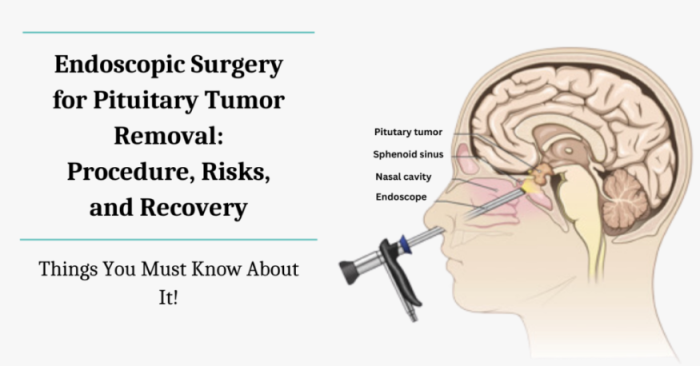Best Pituitary tumor surgery in India is a growing field, with world-class facilities and expert surgeons offering affordable treatment. The country's medical infrastructure supports both traditional and minimally invasive techniques, ensuring patients receive high-quality care. India is fast becoming a hub for pituitary tumor surgeries, attracting international patients due to its cost-effectiveness and success rates.
Understanding Pituitary Tumors: Types and Symptoms
Pituitary tumors are abnormal growths in the pituitary gland and are classified as functional or non-functional. Symptoms vary based on tumor type but commonly include headaches, vision problems, and hormone imbalances. Early diagnosis of pituitary tumors is crucial to prevent complications, especially if the tumor is hormone-secreting.
The Evolution of Pituitary Tumor Surgery in India
The field of pituitary tumor surgery in India has evolved significantly, with advancements in microsurgery and endoscopic techniques. Indian hospitals have incorporated the latest medical technologies, making surgeries safer and more effective. Over the years, the success rates of pituitary tumor removal have increased, leading to better patient outcomes.
Innovative Approaches in Pituitary Tumor Treatment
India offers innovative treatments for pituitary tumors, combining advanced imaging, precision surgery, and post-operative care. Techniques such as endoscopic endonasal surgery and radiosurgery are used to target tumors with minimal invasion. These approaches ensure shorter recovery times and fewer complications for patients.
Endoscopic Endonasal Surgery for Pituitary Tumors
Endoscopic endonasal surgery is a minimally invasive technique used to remove pituitary tumors through the nasal passage. This method avoids the need for open surgery, reducing recovery time and minimizing scarring. It is a preferred option for patients due to its precision and effectiveness in tumor removal.

Microsurgical Techniques in Pituitary Tumor Removal
Microsurgical techniques involve using high-powered microscopes to remove pituitary tumors with great accuracy. These techniques are ideal for small or complex tumors that require detailed surgical intervention. Microsurgery has a high success rate, with minimal damage to surrounding brain tissue.
Minimally Invasive Surgery for Pituitary Tumors: A Game Changer
Minimally invasive surgery for pituitary tumors has transformed the way these tumors are treated. By using small incisions and advanced tools, surgeons can access and remove tumors with minimal trauma to the patient. This approach leads to faster recovery and fewer complications compared to traditional open surgery.
Preparing for Pituitary Tumor Surgery in India: Essential Tips for Patients
Before undergoing pituitary tumor surgery in India, patients should follow essential tips such as understanding the procedure, undergoing necessary pre-surgery tests, and maintaining good overall health. Discussing the risks, recovery time, and post-surgical care with the medical team will help patients prepare mentally and physically for the surgery and ensure a smoother recovery.
Life After Pituitary Tumor Surgery: Essential Post-Surgery Care and Recovery Guide in India
Post-surgery care after pituitary tumor surgery is vital for recovery, including regular follow-ups, medication management, and monitoring hormone levels. In India, specialized care teams focus on rehabilitation to help patients regain strength, manage any complications, and ensure a full recovery. Following a comprehensive recovery plan is essential for long-term health.
Robotic-Assisted Surgery for Pituitary Tumor Removal
Robotic-assisted surgery allows surgeons to perform pituitary tumor removal with greater precision and control. Using robotic systems, surgeons can navigate complex areas of the brain with enhanced accuracy. This technique reduces the risk of complications and enhances post-surgical outcomes for patients.

Gamma Knife Radiosurgery: A Non-Invasive Treatment Option
Gamma Knife radiosurgery is a non-invasive procedure used to treat pituitary tumors without the need for traditional surgery. It delivers targeted radiation to the tumor, shrinking it over time while minimizing damage to surrounding tissue. This is an ideal option for patients who are not candidates for surgery.
CyberKnife Treatment for Pituitary Tumors
The CyberKnife system is another non-invasive treatment for pituitary tumors, offering precise, high-dose radiation therapy. This method is used for both small and hard-to-reach tumors, providing effective results with minimal side effects. Patients benefit from reduced hospital stays and a quicker return to normal life.
Advanced Imaging Techniques in Pituitary Tumor Diagnosis
Advanced imaging techniques such as MRI and CT scans are crucial for the accurate diagnosis of pituitary tumors. These technologies allow doctors to visualize the tumor's size, location, and impact on surrounding structures, guiding the treatment approach. Early and precise imaging is key to effective pituitary tumor management.
3D Mapping and Navigation in Pituitary Surgery
3D mapping and navigation technology has revolutionized pituitary surgery by providing real-time, detailed views of the tumor and surrounding anatomy. This allows surgeons to plan and execute the surgery with greater precision, reducing risks and improving overall success rates.
Intraoperative MRI: Enhancing Surgical Precision
The use of intraoperative MRI during pituitary tumor surgery allows surgeons to monitor the procedure in real-time. This ensures that all parts of the tumor are removed while preserving healthy tissue, improving the likelihood of a complete and successful surgery.
Artificial Intelligence in Pituitary Tumor Surgery
Artificial intelligence (AI) is playing an increasing role in pituitary tumor surgery, aiding in diagnosis, surgical planning, and post-operative care. AI algorithms can analyze vast amounts of data, helping surgeons predict outcomes and personalize treatment plans for each patient.
Laser Ablation Techniques for Pituitary Tumors
Laser ablation is an innovative technique used to treat pituitary tumors by precisely targeting and destroying tumor cells. This minimally invasive method offers an alternative for patients with tumors that are difficult to access through traditional surgery, reducing recovery time and improving outcomes.
Personalized Treatment Plans for Pituitary Tumors
Personalized treatment plans are developed based on the specific characteristics of each pituitary tumor, such as size, location, and hormonal activity. These individualized approaches ensure that patients receive the most effective and least invasive treatments, optimizing their chances for a successful recovery.
Best Pituitary tumor surgery in India
India is becoming a top destination for the Best Pituitary tumor surgery, thanks to its world-class facilities and expert surgeons who offer affordable treatment. The country’s advanced medical infrastructure supports both traditional and minimally invasive techniques, ensuring high-quality care for patients. This combination of cost-effectiveness and high success rates is attracting international patients, making India a hub for pituitary tumor surgeries
Best Hospitals for Pituitary Tumor Surgery in India
India is home to some of the best hospitals for pituitary tumor surgery, including AIIMS, Fortis, and Apollo Hospitals. These institutions are equipped with cutting-edge technology and staffed by top neurosurgeons, offering world-class care at a fraction of the cost compared to Western countries.
Best Doctors for Pituitary Tumor Surgery in India
India has some of he best doctors for pituitary tumor surgery in india, such as Dr. Ashish Suri and Dr. Vikas Gupta. These experts are known for their skill in both traditional and minimally invasive surgical techniques, achieving high success rates in tumor removal.
Cost of Pituitary Tumor Surgery in India: What to Expect
The cost of pituitary tumor surgery in India ranges from $4,000 to $7,000, depending on the complexity of the case and the hospital chosen. This cost is significantly lower compared to countries like the USA or UK, making India an attractive option for affordable, high-quality care.
Post-Surgery Care and Recovery for Pituitary Tumor Patients in India
Post-surgery care for pituitary tumor patients involves regular follow-up visits, hormonal monitoring, and rehabilitation if needed. Recovery time varies depending on the type of surgery, but patients generally experience improvement within weeks. Indian hospitals offer comprehensive aftercare programs to ensure a smooth recovery.
FAQs about the Innovative Techniques for Pituitary Tumor Surgery in India
What is a pituitary tumor?
A pituitary tumor is an abnormal growth in the pituitary gland, which can disrupt hormone production and cause symptoms like headaches, vision problems, and hormonal imbalances.
How are pituitary tumors diagnosed?
Pituitary tumors are diagnosed using imaging tests like MRI or CT scans and hormone level tests to assess their impact on the body.
What is the success rate of pituitary tumor surgery in India?
The success rate of pituitary tumor surgery in India is high, with leading hospitals achieving success rates above 90% for complete tumor removal.
What are the types of pituitary tumors?
Pituitary tumors are classified as functional (hormone-secreting) or non-functional, with symptoms depending on the type of hormones affected.
Is surgery the only treatment option for pituitary tumors?
No, treatment options include surgery, radiation therapy, and radiosurgery (Gamma Knife or CyberKnife), depending on the tumor size and location.
What is the recovery time after pituitary tumor surgery?
Recovery time varies, but most patients can resume normal activities within a few weeks after minimally invasive surgery.
Are pituitary tumors life-threatening?
While many pituitary tumors are benign and slow-growing, untreated tumors can cause serious complications due to their impact on hormone levels and nearby structures.
What are the risks of pituitary tumor surgery?
Risks include infection, bleeding, and damage to surrounding tissues, but advanced surgical techniques have minimized these risks.
Can pituitary tumors recur after surgery?
Yes, in some cases, pituitary tumors may recur, requiring further treatment or monitoring.
How much does pituitary tumor surgery cost in India?
The cost of pituitary tumor surgery in India ranges from $4,000 to $7,000, making it a cost-effective option compared to other countries.